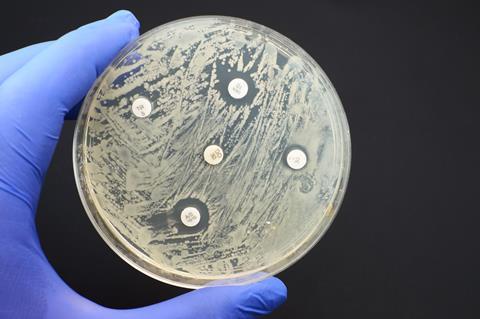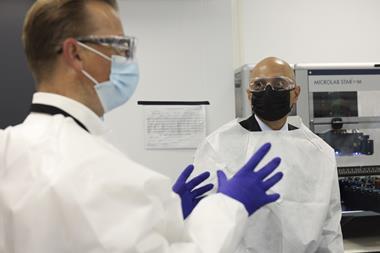
The UK government is scrapping a major initiative to fight antimicrobial resistance (AMR) and support surveillance and stewardship in low- and middle-income countries.
The move has sparked concern among experts who say the cut risks sending a signal that the UK is dialling back its commitment to global health efforts.
Named after the scientist who discovered penicillin, Alexander Fleming, the Fleming Fund was launched by the UK government in 2015 in response to the UK AMR Review and the World Health Organization’s Global Action Plan on AMR, which called for funding to improve AMR surveillance, public awareness and responsible drug use.
Funded by the UK government’s Department of Health and Social Care (DHSC), the programme focused on low- and middle-income countries, where AMR is likely to have the most significant impact. The UK AMR Review estimated that by 2050, up to 90% of deaths related to AMR would be in Africa and Asia.
It has been key in global efforts to build lab capacity, enable data sharing and strengthen antimicrobial surveillance systems across up to 25 low- and middle-income countries.
The decision to close the £256 million Fleming Fund was discussed during an International Development Committee hearing on global health challenges, held on 15 July, when the parliamentary under-secretary for public health, Ashley Dalton, was questioned about it. Dalton said that while the Fleming Fund itself was ‘not continuing’, the ‘partnerships, the information and the expertise are’.
When pushed further, she said: ‘We are all working in a difficult financial situation and some choices have had to be made. What I am saying is that from the work that we have done with the Fleming Fund, there is an awful lot that we can take forward from what we have learned without actually continuing with the actual fund itself.’
She added that the DHSC was looking at how to ‘streamline’ AMR collaboration into tailored country pandemic responses so that it becomes ‘something that countries across the globe are doing, not something that is sitting outside of that’, and added that the Foreign, Commonwealth and Development Office was exploring how it could integrate the expert technical support to transition from the Fleming Fund to country-based ownership.
‘A lot of the work of the Fleming Fund was about awareness-raising and sharing the data so that other countries realise how important this is and can then start to allocate their own resources to not only keep up their surveillance but also to put in place some of the mitigating strategies that we have looked at, such as controlling prescribing of antibiotics,’ said Dalton.
The DHSC told Chemistry World that the government had taken the decision to reduce its Official Development Assistance budget to ‘fund a necessary increase in defence spending’. ‘Our 10-year health plan recognises antimicrobial resistance as a major threat and commits to urgently tackle its spread, including through new vaccines,’ it said. ‘We have made important progress – reducing antibiotic use in meat and pioneering a world-first subscription model to incentivise the development of new treatments. We also continue to work closely with international partners to influence global efforts to limit the spread of AMR.’
In a statement published on 16 July, the British Society for Antimicrobial Chemotherapy (BSAC) said it was ‘seeking urgent clarification’ from the UK government regarding the UK’s future leadership on AMR following the news that the Fleming Fund is set to close. It said that closing the programme without a clear succession plan risked weakening the UK’s biosecurity.
‘The UK has a proud track record of leadership in the global response to AMR,’ said BSAC president Andrew Seaton. ‘It is vital that we maintain a coherent, long-term strategy for investment in AMR surveillance, laboratory infrastructure, stewardship, education and training.’
Jeremy Knox, head of infectious disease policy at Wellcome, said that for the last decade the Fleming Fund had been a ‘flagship example’ of the UK’s global leadership on AMR. ‘As with many areas of global health, cuts like these will be felt most acutely in countries in Africa and Asia,’ he added. ‘It also risks sending a signal that the UK is dialling back its commitment to global health efforts at a challenging moment.’
He said the fund had been ‘instrumental’ in building our understanding of drug-resistant infections and their prevalence and trends worldwide. ‘The world cannot afford to lose this progress. The UK must continue to make concerted efforts against growing global health challenges like AMR, through new and equitable partnerships in countries most affected.’

















No comments yet